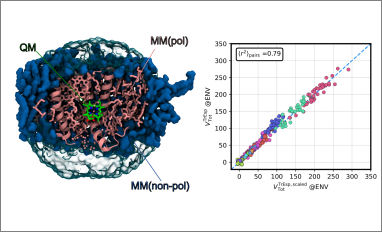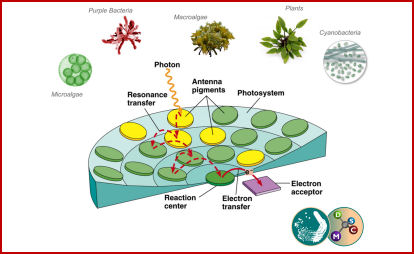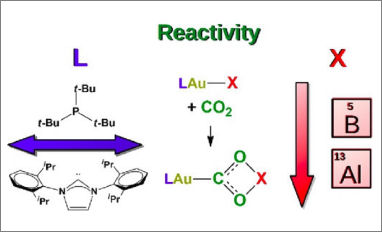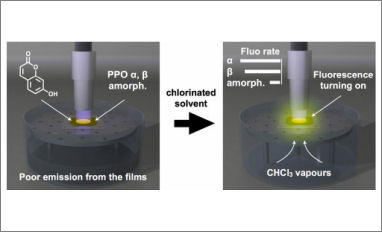
 Congratulations to our PhD student Edoardo Cignoni for his publication entitled "A fast method for electronic couplings in embedded multichromophoric systems". Electronic couplings are key to understanding exciton delocalization and transport in natural and artificial light harvesting processes. The authors develop a method to compute couplings in multichromophoric aggregates embedded in complex environments without running expensive quantum chemical calculations. They use a transition charge approximation to represent the quantum mechanical transition densities of the chromophores and an atomistic and polarizable classical model to describe the environment atoms.
Congratulations to our PhD student Edoardo Cignoni for his publication entitled "A fast method for electronic couplings in embedded multichromophoric systems". Electronic couplings are key to understanding exciton delocalization and transport in natural and artificial light harvesting processes. The authors develop a method to compute couplings in multichromophoric aggregates embedded in complex environments without running expensive quantum chemical calculations. They use a transition charge approximation to represent the quantum mechanical transition densities of the chromophores and an atomistic and polarizable classical model to describe the environment atoms.
 Studio computazionale dei complessi LH2 dei batteri fotosintetici per spiegare l’adattamento delle forme di vita agli ambienti scarsamente illuminati.
Studio computazionale dei complessi LH2 dei batteri fotosintetici per spiegare l’adattamento delle forme di vita agli ambienti scarsamente illuminati.
Quinto appuntamento con il progetto DSCM di comunicazione della scienza nato dalla collaborazione con Microbiologia Italia. L’articolo divulgativo del mese di maggio è stato realizzato dal Dott. Felipe Cardoso Ramos e curato dal Dott. Nicola Di Fidio. “Il processo di fotosintesi, in piante, alghe o batteri, inizia con l’assorbimento della luce solare da parte dei complessi proteici di raccolta della luce (LH) contenenti diversi cromofori. Quest’ultimi sono molecole o sistemi di legami chimici in grado di assorbire radiazioni elettromagnetiche nel campo del visibile e dell’ultravioletto.
 In this work we computationally investigate the reaction of carbon dioxide with [LAuX] (L =phosphine, N-heterocyclic carbene (NHC); X = Al(NON), B(o-tol)2) complexes to get insights into the Al/B anionic and gold ancillary ligand effects on the Au-Al/B bond nature, electronic structure, and reactivity of these compounds. The Au−Al and Au−B bonds have both an electron-sharing nature, with the diarylboryl gold complexes displaying a more polarized Auδ+−Bδ− bond. The gold ligand (phosphine or N-heterocyclic carbene) has a negligible electronic effect on the Au−X bond, consistently with a radical-like reactivity of the complexes with carbon dioxide, which favors the gold-aluminyl over the gold-diarylboryl complexes.
In this work we computationally investigate the reaction of carbon dioxide with [LAuX] (L =phosphine, N-heterocyclic carbene (NHC); X = Al(NON), B(o-tol)2) complexes to get insights into the Al/B anionic and gold ancillary ligand effects on the Au-Al/B bond nature, electronic structure, and reactivity of these compounds. The Au−Al and Au−B bonds have both an electron-sharing nature, with the diarylboryl gold complexes displaying a more polarized Auδ+−Bδ− bond. The gold ligand (phosphine or N-heterocyclic carbene) has a negligible electronic effect on the Au−X bond, consistently with a radical-like reactivity of the complexes with carbon dioxide, which favors the gold-aluminyl over the gold-diarylboryl complexes.
 Congratulations to our Ph.D. student Cosimo Micheletti and to our grant holder Francesco Ventura for their scientific publication entitled “Nanoporous-crystalline and amorphous films of PPO including off-on vapochromic fluorescent 7-hydroxy coumarin guests” in Polymer journal. The study examines the preparation of nanoporous-crystalline and amorphous films of poly(2,6-dimethyl-1,4-phenylene)oxide (PPO) containing 7-hydroxy coumarin (i.e., umbelliferone) for the detection of chloroform vapours.
Congratulations to our Ph.D. student Cosimo Micheletti and to our grant holder Francesco Ventura for their scientific publication entitled “Nanoporous-crystalline and amorphous films of PPO including off-on vapochromic fluorescent 7-hydroxy coumarin guests” in Polymer journal. The study examines the preparation of nanoporous-crystalline and amorphous films of poly(2,6-dimethyl-1,4-phenylene)oxide (PPO) containing 7-hydroxy coumarin (i.e., umbelliferone) for the detection of chloroform vapours.



